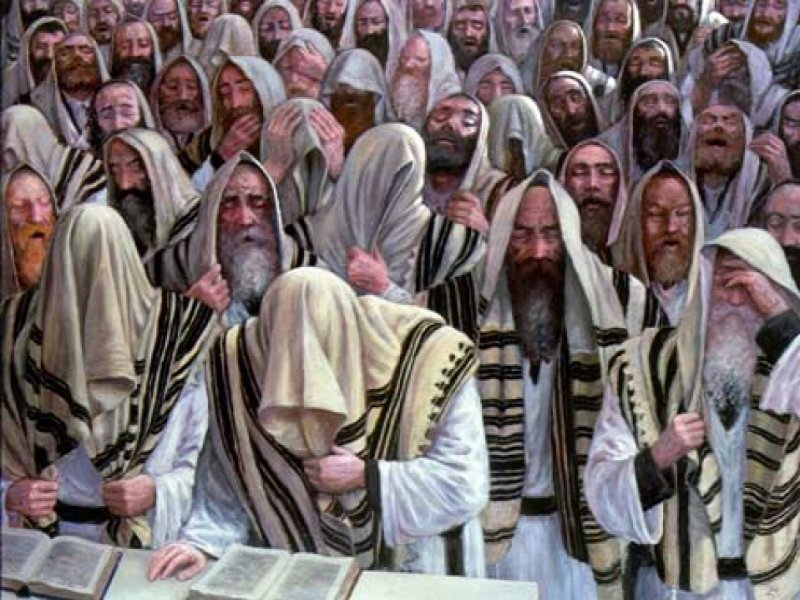
By Raphael Ahren
Why did Jews not blink an eye when Mein Kampf first came out?
Prewar Germany had no shortage of Jewish newspapers, but not one reviewed Hitler’s book. They didn’t want to “waste time with such nonsense”, one scholar says, though some Christians went to town on it
In January 2016, with the close of a 70-year ban, Hitler’s Mein Kampf was republished in Germany. The event made headlines worldwide, and sparked particularly anguished debate in the German Jewish community. This volume of “scorning propaganda” must remain prohibited, Josef Schuster, the president of the Central Council of Jews in Germany, protested, specifying that “law enforcement authorities should rigorously prosecute the distribution and sale of the book”,
By contrast, when Mein Kampf came out for the first time, 91 years ago, German Jews hardly noticed it. They certainly did not view it as a threat to their existence, or even as a harbinger of a changing political climate in the Fatherland.
There were several Jewish papers in prewar Germany — Israelitisches Familienblatt, Jüdische Rundschau, Der Israelit, Das Jüdische Echo, Jüdisch-liberale Zeitung, and right-wing publications like Der Schild and Der nationaldeutsche Jude — but only one of them ran a short piece about Mein Kampf, which was essentially an excerpt from another paper’s review. On October 9, 1925, CV-Zeitung of the “Central Association of German Citizens of the Jewish Faith” ran a short piece on page nine entitled “Rather than spirit, arrogance,” which did not offer its own critique of Mein Kampf, but sufficed with quoting a negative review in the conservative Kreuz-Zeitung.
“The Jewish newspapers mostly ignored Hitler’s book. Now and then there were hints to the book, but no deeper discussion or analysis,” said Othmar Plöckinger, who recently published a 700-page book with many historical sources dealing with Mein Kampf, including 51 contemporary reviews. Only one of them was in a Jewish paper.
The front page of the October 9, 1925 edition of the CV-Zeitung of the Central Association of German Citizens of the Jewish Faith (Universitätsbibliothek Frankfurt am Main/Digitale Sammlungen Judaica) refers.
- Chamisa under fire over US$120K donation
- Mavhunga puts DeMbare into Chibuku quarterfinals
- Pension funds bet on Cabora Bassa oilfields
- Councils defy govt fire tender directive
Keep Reading
“The anti-Jewish attitude of the Kreuz-Zeitung… is the best guarantee for the calm and correct judgment of the book and its author,” the CV-Zeitung declares. It then goes on to quote one paragraph describing Hitler’s book as superficial, pompous and repulsive.
“One looks for spirit and finds only arrogance; one looks for inspiration and receives boredom; one looks for love and passion and finds slogans; one looks for healthy hate and finds swearwords,” the Kreuz-Zeitung’s reviewer laments.
The editors of the CV-Zeitung, a paper dedicated to “Germaness and Judaism,” have nothing to add. They promise their own review of the “völkisch Führer’s book,” but it never appears.
“When Jewish newspapers reported about Hitler and his National Socialist Party, the main focus was on insults or attacks on Jews, desecration of Jewish cemeteries and so on, but not on the National Socialist ideology,” Plöckinger told The Times of Israel in an interview.
When the Jewish press did examine anti-Semitic “ideology”, they mostly looked at “scientific” anti-Semites — adherents of eugenics — and not at Hitler and his book.
As Rahel Strauss, a physician who grew up in Karlsruhe and in 1933 emigrated to Palestine, writes in her memoirs, “We passed by the boxes of the Völkischer Beobachter [the official organ of the Nazi Party], read the incendiary articles and indignantly continued working. We didn’t realise that this Völkischer Beobachter was one of the most read newspapers in Germany at the time. We saw Hitler’s Mein Kampf on display in every bookstore; none us bought it, none of us read it.”
In some respect, Plöckinger said, the Jews’ reaction to Hitler’s screed, or rather the lack thereof, “was a kind of not wanting to waste time with such nonsense as Mein Kampf”.
Until the late 1920s, Hitler’s party was just one of many völkisch and anti-Semitic movements that Jewish papers dealt with. But even as Hitler became more prominent, his party was seen as a “radical and brutal offshoot” of a much more important and influential anti-Semitic intellectual superstructure”, explained Plöckinger, who co-edited the annotated edition of Mein Kampf that was published earlier this year.
While Jewish papers largely overlooked Hitler’s tome, that does not mean individual Jews and non-Jews opposed to anti-Semitism paid it no attention. They did, but they often dismissed it as poorly written, populist rubbish by a charlatan who should not be taken seriously. One notable exception is the Jüdisch-liberale Zeitung, which on August 20, 1930, ran a front page article, entitled “The National Socialist Menace”, which deals at some length with Hitler’s ideology as laid out in his book.
On November 1, 1925, Stefan Grossman, who was born Jewish but converted to Christianity, published an extensive review of Mein Kampf in the Vienna-based Neue Freie Presse, a highbrow paper for which Theodor Herzl had written decades earlier. Grossman started his review by describing his first meeting with the book’s author, whom he met two years earlier when the “unsightly” and “incredibly trivial” Herr Hitler sued Grossman for an article critical of the Nazi party.











